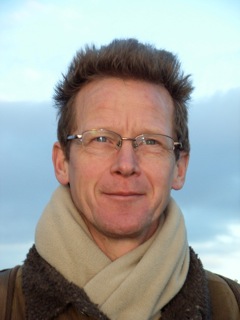Consistent subsidy policy crucial to wind power investment

Stable financial support continues to be an important incentive for smaller and specialized businesses to invest in wind power. Changes in feed-in tariffs result in less new capacity for wind power generation. This is the outcome of a recent study by Lone Werner and Bert Scholtens into the effect of changes to legislation on investment in wind capacity in Germany. Investment by conventional energy suppliers is less sensitive to changes to subsidies. For the traditional energy giants, it is primarily the volatility of electricity prices and construction and pollution costs that determine whether they invest in wind.

Werner and Scholtens studied the effects of changes to feed-in tariffs (a government payment scheme to accelerate the adoption of renewables) in the period 2000–2014. What made this study unique was that they analysed how different types of organization respond to such changes. The organizations included energy suppliers, small private investors, diversified businesses and independent energy producers. ‘We show that the exact size of the subsidy is less relevant than we would have expected. Our results suggest that policymakers should continue to try to reduce uncertainty by being clear about the risks for each type of investor. The main way the government can achieve this is by being transparent and consistent’, says Scholtens.
Werner and Scholtens conclude that the different company types have different reasons for investing in wind power. Although profitability plays a role for all types of company, the environment and local area are powerful incentives for the smaller and independent producers. The intrinsic motivation of conventional energy suppliers to invest in wind power proved limited during the period of study. It tended to be pressure from legislation or shareholders that prompted them to invest in wind power.
About the researchers
Lone Werner conducted this research as part of the Bachelor’s Honours programme at the Faculty of Economics and Business. She holds a Master’s degree in Sustainable Energy Systems from the University of Edinburgh and currently works at Denker & Wulf AG in Sehestedt (Germany). Bert Scholtens is Professor of Sustainable Banking and Finance at the University of Groningen and the University of St Andrews (Scotland). The researchers’ findings were published the Journal of Industrial Ecology.
Further information
- Contact: Bert Scholtens , Professor Sustainable Banking and Finance
- Full publication: Werner, L., & Scholtens, L. (2017). Firm Type, Feed-in Tariff, and Wind Energy Investment in Germany: An Investigation of Decision Making Factors of Energy Producers Regarding Investing in Wind Energy Capacity . Journal of Industrial Ecology , 21(2), 402-411. DOI: 10.1111/jiec.12443
________________________________________________
> More news from the Faculty of Economics and Business
> FEB experts in the media


| Last modified: | 29 February 2024 10.02 a.m. |
More news
-
02 May 2024
Johan Remkes te gast in podcast Leiderschap in Onzekere Tijden Live
Oud-minister en oud-informateur Johan Remkes is op 15 mei te gast in de Podcast Leiderschap In Onzekere Tijden. In de liveopname van de podcastaflevering gaat hij met FEB-hoogleraren Janka Stoker en Harry Garretsen in gesprek over de huidige...
-
29 April 2024
The Maddison Project: New 2023 Update Illuminates Origins of Modern Economic Growth
In a new update of the renowned Maddison Project Database, economic historians shed new light on the genesis of modern economic growth.
-
29 April 2024
Guido Berends and Hylke Dijkstra win FEB Research Awards 2023
The awards for best PhD thesis and best graduate of the research master were presented at the annual PhD conference held on April 18. Guido Berends won the Best PhD Thesis Award 2023 and Hylke Dijkstra won the Research Master Graduate Award 2023.
